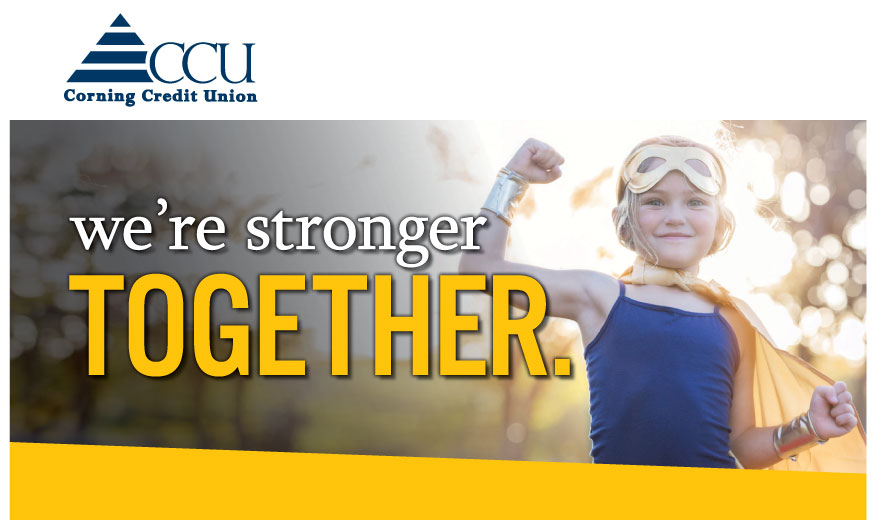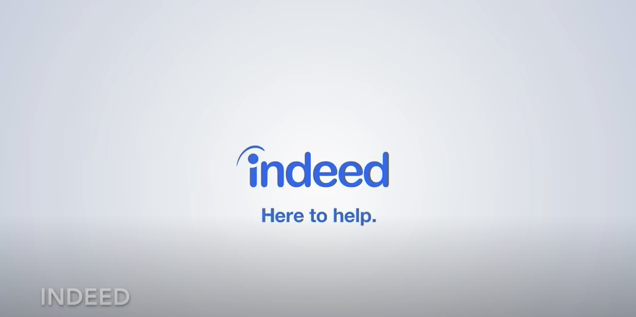
More and more, our politicians are coming to resemble this fellow. If our institutions are resilient enough, we should be okay—but are they? (Photo by Jametlene Reskp on Unsplash)
We live in a world where we are constantly lied to. Our leaders and our politicians lie to us (but at least we expect this). The companies we rely on, including our financial institutions, lie to us. Companies lie to their own employees (recent examples include Amazon, Facebook, Google, and Uber). Even our most trusted institutions such as universities and the medical system lie to us regularly. It’s no surprise that we’ve witnessed a breakdown of trust over the past few years, and it’s no surprise that “trustless” systems like Bitcoin continue to gain in popularity.[1]
Society cannot function without trust, and the breakdown of trust is one of the biggest collective crises that we face. It makes addressing other problems, from climate change to Covid19, much more difficult.[2] This subject merits much deeper analysis and discussion, but for the purposes of this article I want to focus on one particularly common, repugnant type of dishonesty that has contributed much to this breakdown: hypocrisy.
Hypocrisy is the type of lying that bothers me the most. It’s a surprisingly complex, nuanced phenomenon with a number of different definitions. In a nutshell, hypocrisy is a pattern of behavior that involves professing certain beliefs, values, or virtues, while simultaneously acting in ways contradictory to those stated beliefs, in effect contradicting oneself. While not strictly required, it often involves criticizing the same behavior in others.
Some hypocrites lie outright and profess to believe things they don’t really believe, thus deceiving others. More often, however, hypocrites are really only deceiving themselves. If there’s one thing worse than lying to others, it’s lying to yourself. This is probably one of the reasons hypocrisy bothers me so much.
In a world full of complexity and moral relativism, internal consistency is one of the few absolutes we can realistically, rightfully, and regularly expect from one another. We don’t always have to agree, we don’t always have to understand or be okay with each others’ beliefs and behavior, but at minimum we should do the things we say we will do. We should act in a way that’s consistent with the things we believe and the things we say we believe. We should not contradict ourselves. And we should expect the same of others.
While hypocrisy on the part of an individual is bad enough, hypocrisy on the part of an institution is much worse. An individual can be forgiven for a temporary lapse of consistency, but the raison d’être of an institution is consistency (along with efficiency and longevity). As individuals, we are fickle and unreliable. We build and subsequently align ourselves with institutions as a guard against our own failures and unpredictability.
Individuals aren’t very good at clearly articulating their values and principles. To do this is difficult, and it can be the work of a lifetime. On the other hand, an institution that doesn’t know what it stands for isn’t an institution at all. At best, it’s unfocused and ineffective; at worst, it’s a tool in thrall to someone else’s will. In any case, such a false institution is almost by definition deceptive to those inside and outside.
Many types of institutions are guilty of institutional hypocrisy. Here are a few examples.

A perfect example of the sort of advertising that bothers me. I’m not sure what a credit union has to do with a girl dressed as a superhero, or why I and a credit union are “stronger together.” (Source)
Commercials and advertisements with messages such as, “We’re here for you” or “Stronger together” have always bothered me. These are things that family members and close friends say to one another. When a company says them, it comes across as hollow and devoid of meaning. It’s an attempt to rob these phrases of the power they have when they’re used meaningfully and intentionally. It would be one thing if the message came directly from someone with whom I had a personal relationship, such as a banker or shopkeeper. Coming directly from corporate HQ, conveyed over an impersonal medium such as television or the Internet, it’s particularly offensive.



It’s good to know that so many firms are suddenly “here to help” in the wake of the pandemic. As one commentator put it on YouTube, “We know you've lost your job, we know you've lost family members, but please buy our new Cadillac Escalade.” (Source: Every Covid-19 Commercial is Exactly the Same)
In the wake of the current pandemic, this style of marketing has become even more common. Companies may intend messages such as these to sound reassuring, but to me, they come across as insensitive and tone deaf. Rather than leaving families alone to face this crisis and, for those who have lost loved ones, to grieve in their own way—you know, with actual friends and family—our capitalist machine cannot quiet itself for even a moment. As one commentator put it on YouTube, “We know you’ve lost your job, we know you’ve lost family members, but please buy our new Cadillac Escalade.”
Companies do not “miss” us and we’re not “welcome” back any more than they’re “there for us” in normal times. What they miss is their profits, and what’s welcome is our money. A company is not there for you the way a friend or family member is, it’s there to take as much of your money as it can.
Of course, many companies are also struggling in the wake of the pandemic. Why can’t they be honest about this fact? A much better sales pitch would be, “Ordinary people work for us, and we’re struggling, and if we can’t stay in business, then they’ll lose their jobs. Now, would you like to buy a tasty burger?” At least it’s honest, vulnerable, and to the point!
Dishonest, hypocritical marketing takes many forms. My personal favorite example is when a company puts you on a long hold to speak to a customer service representative, and gives you the pre-recorded message, “We know your time is valuable. We’ll be with you as soon as possible.” (Translation: We don’t value your time at all, or we would’ve invested more in customer service so you don’t have to wait. We’ll be with you when our stingy budget allows. Maybe.)[3] Then there are all of the mediocre products and services marketed as “premium” or “elite” that are nothing of the sort. Of course, no company wants to market its products as “basic.” This gives rise to the fascinating phenomenon of Premium Mediocre.[4]
I find this sort of marketing genuinely offensive and demeaning. Why do companies feel that they need to lie to us to earn our business? Why do they feel the need to pander to consumers as if we somehow can’t handle the truth that they care about profits and not about us as people?

A full-page ad that Patagonia ran in the New York Times in November, 2011.
Not all companies lie to us. There are a precious few that know what they stand for and act in a way that’s consistent with their values. One example is Patagonia, which famously ran a full-page ad in the New York Times on Black Friday a few years ago reading, “DON’T BUY THIS JACKET” as a way to encourage consumers to consider the environmental impact of their purchasing decisions. Another is CVS, which discontinued the sale of tobacco products in 2015 (whereas all of its rivals still sell tobacco products, directly violating their values and mission statements).
While it probably comes as no surprise that companies lie to us all the time, what about more trusted institutions such as universities? In fact, universities are guilty of similar behavior. Universities market themselves as places of learning, which typically requires good instruction, yet incentivize their faculty to do research and publish rather than to teach well. Indeed, this is the only way to gain tenure at most schools. Why? Probably because metrics such as number of articles published and citations are objective and easy to measure, while quality of teaching is not. Quality and quantity of published research is also the main way that academics and universities evaluate one another. As a result the quality of teaching, and thus student experience, tends to suffer.
What about the medical system? Different health and insurance systems in different countries and states, coupled with differing policy approaches and an increasingly quantitative, evidence-based, outcomes-oriented approach to medicine, provide a wealth of data for interesting comparisons of the effects of culture, policy, and incentivization. Atul Gawande has written compellingly on this topic.
It turns out that doctors and hospitals lie to us, and to themselves, too. Most doctors tend to believe that prestigious medical institutions provide the best care leading to the best patient outcomes, even without supporting evidence. There’s widespread belief that surgeons who attended the best medical schools and have the best reputations are better surgeons, but research indicates that successful outcomes depend primarily on something much more mundane: number of past surgeries performed. And, as Gawande has written about poignantly, doctors are just as susceptible to the Lake Woebegone effect as other people: they all tend to believe they’re ahead of the curve, even though this is statistically impossible.
Another example is financial incentives. Doctors want to believe themselves, and want us to believe, that they always want what’s best for the patient: in other words, that incentives are always aligned. In fact, research shows that doctors are incentivized by money, and that they tend to order more tests, interventions, and prescriptions when they stand to benefit financially as a result. The fact that healthcare institutions and doctors have resisted further research on these topics and publication of individual performance data is a form of institutional hypocrisy and collective self-deception.
Last but not least, we’d be remiss if we didn’t consider the most chronic of all cases of hypocrisy: that which afflicts our governments and the electoral process. In surveys, voters regularly report that honesty, integrity, and ethics are the most essential characteristics for someone elected to high political office. Yet we’ve come to expect our governments and political leaders to lie to us regularly. Indeed, research suggests that we want politicians to lie to us, and that honest politicians are less likely to be reelected. There’s nothing new about this phenomenon and disinformation has been a political tactic for millennia. What’s new is the brazenness with which modern politicians lie and the degree to which this behavior goes unpunished.
If hypocritical voters electing hypocrites to high office isn’t bad enough, the offices themselves and the institutions they stand for are guilty of an entrenched form of hypocrisy as well. In an especially shameless example, countries with the word “democratic” in their name are among the least democratic.[5] These same countries often run sham elections that aren’t free, fair, or transparent—but, of course, they always say they are. They maintain the barest veneer of democracy as a claim to legitimacy.
Actual democracies aren’t always better when it comes to honesty and integrity. We Americans tout the merits of liberty, transparency, due process, habeas corpus, and rule of law. But we also keep “enemy combatants” in prison against their will and without trial for decades, classifying them “indefinite detainees” or “forever prisoners.” We engage in forms of torture such as waterboarding, breaking our own laws and pretending it’s okay through the use of euphemisms like “enhanced interrogation.” We condemn extrajudicial, extraterritorial abductions, transfers, and detentions on the part of countries like China, yet engage in the same behavior ourselves. And let’s not forget that we also separate migrant children from their families and lock them in cages against their will.
If these ignominious examples have one thing in common, it’s a misalignment of incentives. You get the behavior you incentivize. Companies will continue to pander to consumers as long as consumers continue to consume products marketed dishonestly. Universities will continue to invest more in research than in quality of instruction as long as the public values and evaluates universities on the basis of research over instruction. Doctors will continue to prescribe unnecessary pills and procedures as long as they are paid to do so (and sued when they don’t). Political leaders will continue to act like lying, spoiled, entitled children until we hold them to account and elect better leaders. And our most cherished institutions, including our courts and our Constitution, will continue to be debased by hypocritical behavior until we demand change.
The rise of social media portends a dystopian future where we are all defined by a shallow public image and vanity metrics like follower count rather than by the substance and integrity that makes us who we really are: the things we really believe in, the projects we dedicate ourselves to. But there is hope. Covid19 has exposed the empty bluster of populists and the sham marketing of insolvent corporations. As Warren Buffet famously remarked, “Only when the tide goes out do you discover who’s been swimming naked.” And nascent technologies such as blockchain, and the communities and systems of belief and values that they engender and embody may yet augur in a new era of less bullshit.
Before we attempt to reform our institutions and make them more honest, however, we must learn how to be honest with ourselves. The first step is the hardest.
Do you have other good examples of institutional hypocrisy? How do you think we should go about fixing things? Leave a comment and share your thoughts.
-
Bitcoin, and blockchain more generally, is often called “trustless” because in theory you don’t need to trust what anyone else says in order to use the system. If you run your own Bitcoin node, you can be sure that your balance is what your node says it is. The term is a bit misleading since you’re still trusting many things when you use Bitcoin: you’re trusting that the code does what it says it does, you’re trusting the underlying cryptography, you’re trusting that your Internet and power connections will be stable, you’re trusting the nodes you talk to to follow the rules of the protocol, etc.. The point is, you’re not placing your trust in a single, centralized, authoritative institution the way you are when you transact with a bank or use fiat money. ↩
-
Incidentally, and perhaps unsurprisingly, climate change and Covid19 are two of the topics that those in power seem to like to lie about the most. ↩
-
Statements like this remind me of Betteridge’s law of headlines, which states that, whenever a newspaper headline ends in a question mark, it can be answered no. Whenever a company suggests in their marketing materials that they “care about” or “value” you, they don’t. It’s just a euphemism for wanting your business. ↩
-
Truly premium products aren’t labeled “premium.” They don’t have any label at all. They’re usually bespoke. ↩
-
This in and of itself is a fascinating phenomenon. For some background on how this happened, see The Undemocratic People’s Republic of Korea. As Santiago Siri, founder of the Democracy Earth Foundation once put it, “Democracy has become such a powerful meme that even countries that aren’t democracies have to pretend that they are.” ↩